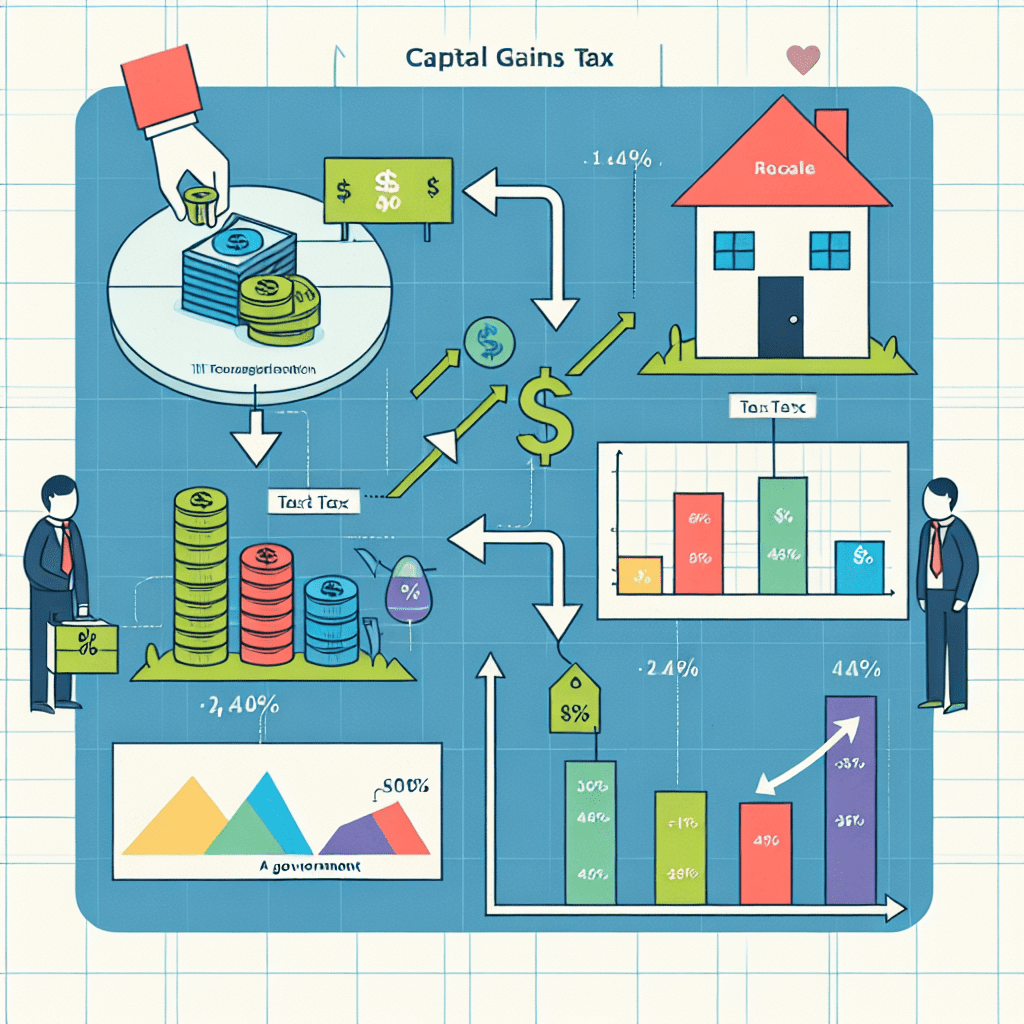As an investor, you should be familiar with Capital Gains Tax (CGT). Capital Gains Tax is a tax on the gains made on an asset you hold, for example stocks, real estate (except with your main residence, so will apply to additional properties owned, shares, and so on) whose value has risen beyond your purchase price at the time you decided to sell or give it away at a profit. For simplicity, I will focus on stocks but this is applicable to other areas too.
One key consideration with capital gains tax is you need to remember it always relates to the additional gains made, NOT the total sale price.
For instance, let’s say you bought shares worth £10,000 and later sold them for £15,000. That leaves you with a £5,000 profit, which is the amount HMRC considers for Capital Gains Tax.
As of now, for the 2024-25 tax year, you get a £3,000 annual allowance. So, you’d only pay tax on any gains above that threshold.
| Tax year | Annual exempt amount for individuals, personal representatives and trustees for disabled people | Annual exempt amount for other trustees |
|---|---|---|
| 2024 to 2025 | £3,000 | £1,500 |
| 2023 to 2024 | £6,000 | £3,000 |
| 2022 to 2023 | £12,300 | £6,150 |
| 2021 to 2022 | £12,300 | £6,150 |
| 2020 to 2021 | £12,300 | £6,150 |
| 2019 to 2020 | £12,000 | £6,000 |
Source: UK Government CGT Guidelines
Capital Gains Tax Rates in the UK
The amount of Capital Gains Tax (CGT) you owe hinges on what you’re selling and where you sit on the income tax ladder. If you’re in the basic rate band, you’ll typically pay 10% on your gains. But if you’re in the higher or additional rate brackets, expect to fork out 20%. However, for residential property (other than your main home), the rates are higher—18% for basic rate taxpayers and 28% for those in the higher or additional bands.
In order to calculate the CGT payable, your CGT base amount is then added to your taxable gain for the year. Since it may place you in a higher tax bracket, you may be liable for CGT at varying rates on different parts of the gain. For example, a basic rate taxpayer with taxable income and gain over the higher rate threshold £50,270 for the tax year 2023/24) would pay 10% rate on the part of the assessable income and gain in the basic rate band, and 20% on the part of the assessable income and gain above it.
Reducing Your Capital Gains Tax Bill
There are many approaches to minimising the Capital Gains Tax you owe in the UK:
- Use Your Annual Exemption
You should ensure that you make use of your full annual CGT allowance, as any unused portion cannot be brought forward to the next year. Tax-free transfer of assets between spouses allows individuals to benefit from the allowances of both spouses. - Consider Tax-Loss Harvesting
If you’ve realised a loss on an asset, you can offset the loss against gains in the s ame tax year and therefore reduce your CGT liability. Any unrecovered losses can be brought forward to offset receipts in subsequent years as long as these are filed with HMRC. - Hold Investments in Tax-Efficient Accounts
Some assets, including Individual Savings Accounts (ISAs) and pensions, are CGT exempt. The tax-free growth and withdrawals are allowed when holding shares and holding investments in an ISA, irrespective of the capital gain. - Gift Assets to Family Members
Transferring assets to a spouse or civil partner is generally exempt from CGT, which can help minimise your combined tax burden. As a further possibility, donation of assets to relatives may be used, however it is necessary to take account of the availability of inheritance tax. - Claim Principal Private Residence Relief
If you dispose of your principal dwelling, you will typically be exempt from Capital Gains Tax (CGT) on the gain, provided it has been your principal home for the duration of ownership. Partial relief may be possible if the property was being leased/used for commercial purposes.

Reporting and Deadlines
In the UK, property gains must be declared and charged with CGT within 60 days of property disposal. For non-land assets, the tax is determined and paid as an integral part of your annual submission tax return, with deadline set by 31 January following the year end.
Precise record-keeping is vital since you will have to supply information about purchase price, selling price, linked costs (e.g., legal costs, stamp duty etc.) and any reliefs or losses used.
Changes to Capital Gains Tax Rules
The recent changes to the Capital Gains Tax allowance has narrowed the tax planning opportunities. The annual exemption has been reduced from £6,000 for 2023/24 to £3,000 from April 2024. This has the consequence that a larger number of people might become liable to pay CGT, and therefore it is even more crucial to think in advance.

Final Thoughts
Capital Gains Tax is something with which every seller of an investment or asset in the UK needs to be familiar with. Gaining more knowledge of the rules, being more informed about offered allowances, and investigating tax-efficient options, liability can be lowered and adherence to financial plans can be maintained allowing you to save more money in the long term.
We must reiterate that we are also not financial advisors and if you would like a more individualised recommendation, please contact a tax professional or financial planner who has the details of your personal situation.















